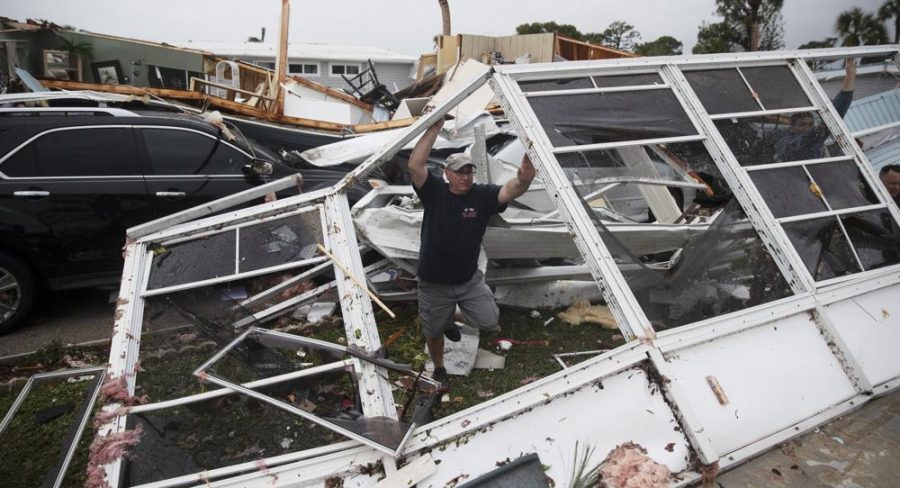Climate change creates widespread issues
January 24, 2022
The United States has been subject to many severe weather events in the past year. From wildfires in Colorado to tornadoes in Florida, there has been no shortage of surprises in the sky.
Just last week, the west coast dealt with the impacts of rising sea levels after a volcano erupted near the island of Tonga. According to the Los Angeles Times, the eruption near New Zealand caused waves of up to four feet to enter the west coast, flooding several parking lots and streets.
This comes in the wake of wildfires that are actively burning in Colorado and California and tornadoes in Kentucky and Florida.
Fire and tornado season normally peak in the spring and summer, but there have been abnormalities in the weather pattern during the past few years, according to The New York Times.
Many people were alarmed at how quickly the atmosphere seems to be changing because of the synchronization of these events.
Isaiah Montgomery, a junior atmospheric science major, said it’s not uncommon to see multiple weather events like wildfires and tornadoes in the same day.
“A system that is strong enough to produce numerous tornadoes would be expected to carry strong winds, and if the other conditions are right, then fires can spread out of control very quickly, as hot dry air from the Rocky Mountains is quickly moving across the Plains,” Montgomery said.
He pointed out that the volcano eruption was likely unrelated to climate change, but that the threat for more extreme weather is very real.
According to the Environmental Protection Agency, the Earth has consecutively had its warmest years on record for the past 10 years.
Balin Rogers, a junior atmospheric science major, said he has no doubt it is warming, but maybe not as much as people think. However, it still comes with problems.
“The problem is this small rise in the average surface temperature of the Earth can have drastic changes in temperature in certain localized places,” Rogers said. “It is still pretty unknown of how this warming of the Earth can impact weather, but there have been several studies and theories on it.”
Even Monroe has been impacted by these temperature changes. Last year, ULM had to cancel school for a week due to an unprecedented ice storm that hit the area.
Justin Ritcher, a junior atmospheric science major, said events like this will continue to become more common.
“We in Monroe can see effects from storms getting more severe and potentially tornadic to events such as the ice storm last year,” Ritcher said. “Storms will appear more often and more intense.”
If the climate continues to change, everyone will have to learn how to adapt to life with more extreme weather events.
Scientists from NASA have pointed out that the only way to stop the spread of climate change is for everyone to work together and become more eco-friendly.
Montgomery said stopping the problem is a worldwide issue that “requires countries to work together, and until we find new ways to get renewable energy, it’s a hard battle.”



